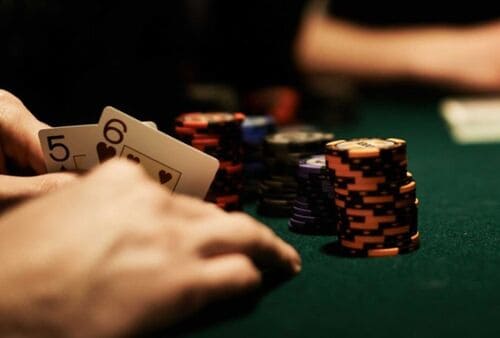There are 5 betting actions to always keep in mind when playing poker; Checking, Betting, Folding, Calling, and Raising. For instance, if you have a weak hand, you can fold, meaning you surrender your cards and take no further part in hand hence you lose all the money you have contributed to the pot. After folding your hand, the dealer places it in a pile of other discarded hands referred to as muck. Having touched the muck, your hand is now termed as dead, the action cannot be reversed.
In case you do not want to continue in the hand after someone else has bet, you may call or raise. Anyhow, if you like your hand you can raise, herein, the bettor is forced to match your raise to continue in the hand. Keep in mind that the original bettor has the option to re-raise placing the onus back to you so that you can match his bet to stay in the hand. Alternatively, if a round goes without any betting, a player has the option to either bet or check.
If you decide to check, it means you have deferred your betting rights for the time being. You give another player a chance to bet and you may fold your hand, call, or raise. If no one bets on that round then the next card is dealt and the first player gets a chance to either bet or check. Checking in poker means a player has simply passed the action to another player without making a wager. It is to pass up an opportunity to make a bet when it is your turn. When the player gets the chance to act he or she has the option of calling the previous bet, making a raise on the bet, or checking.
When can you check in Poker?
Checking is done when there are no bets that have been placed on the current betting round. If a bet has already been placed then the alternatives include a call, fold, or raise.
You can check when you want to keep playing but you are not confident enough in your cards.
The advantage of checking is that you play in a low-pressure situation where nobody can force you to spend your money to stay in the game. Therefore, you can decide the amount of money you are willing to risk.
So when can you check in poker;
- When you do not like the cards in your hand
- You suspect that your opponents have better cards than you
- When you aim at a great hand, but you need help from the dealer
- You cannot tell what your opponent has in his hand
- If your bet has not been raised
- When you are either on the big blind and no one has raised pre-flop
- When no one has raised a bet yet the action to check falls on you post-flop
